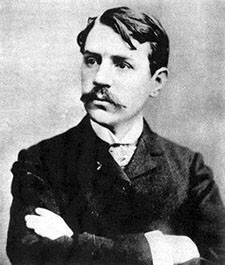Paul Bourget Frases famosas
Le suffrage universel, la plus monstrueuse et la plus inique des tyrannies, car la force du nombre est la plus brutale des forces, n'ayant même pas pour elle l'audace et le talent.
Le disciple - Página 4, de Paul Bourget, Teodor de Wyzewa - Publicado por Nelson, 1932 - 355 páginas
“Em certos momentos, as palavras são nada; mas sim o tom em que são proferidas.”
At certain moments, words are nothing; it is the tone in which they are uttered.
Fonte: Cosmopolis (1892), capítulo 5, "Countess Steno" ("Condessa Steno")
Paul Bourget frases e citações
Paul Bourget: Frases em inglês
Pierre Fauchery, as quoted by the character "Jules Labarthe"
The Age for Love
I, his dear confrère! Ah! if he had known!
The Age for Love
Pierre Fauchery, as quoted by the character "Jules Labarthe"
The Age for Love
Fonte: Cosmopolis (1892), Ch. 5 "Countess Steno"
“At certain moments, words are nothing; it is the tone in which they are uttered.”
A de certaines minutes, les mots ne sont rien, c’est le ton qui est tout.
Fonte: Cosmopolis (1892), Ch. 5 "Countess Steno"
Fonte: Cosmopolis (1892), Ch. 4 "Approaching Danger"
Pierre Fauchery, as quoted by the character "Jules Labarthe"
The Age for Love
Fonte: Cosmopolis (1892), Ch. 2 "The Beginning of a Drama"
“The cruelest revenge of a woman is to remain faithful to a man.”
La plus cruelle vengeance d'une femme est quelquefois de nous rester fidèle.
Physiologie de l'Amour Moderne http://books.google.com/books?id=5H5cAAAAMAAJ&q=%22La+plus+cruelle+vengeance+d'une+femme+est+quelquefois+de+nous+rester+fid%C3%A8le%22&pg=PA326#v=onepage (1889)
Pierre Fauchery, as quoted by the character "Jules Labarthe"
The Age for Love
Epilogue.
Cosmopolis (1892)
